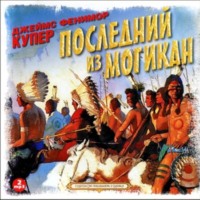 полная версия
полная версияMercedes of Castile: or, The Voyage to Cathay
"And is it a matter of jest, Master Nuñez," returned the servant, though a slight smile struggled about his mouth, as if ready to join in his companion's merriment; "that we are penniless? Thank Heaven! the Burgo of Osma cannot be very distant; and we may have less occasion for gold. And now, master of mine, let me command thee to keep thy proper place in this cavalcade, and not to forget thyself by such undue familiarity with thy inferiors. I have no farther need of thee, and therefore hasten back to Master Ferreras and acquaint him with my sympathy and grief."
The young man smiled, though the eye of the pretended servant was averted, as if he cared to respect his own admonitions; while the other evidently sought a look of recognition and favor. In another minute, the usual order of the journey was resumed.
As the night advanced, and the hour arrived when man and beast usually betray fatigue, these travellers pushed their mules the hardest; and about midnight, by dint of hard pricking, they came under the principal gate of a small walled town, called Osma, that stood not far from the boundary of the province of Burgos, though still in that of Soria. No sooner was his mule near enough to the gate to allow of the freedom, than the young merchant in advance dealt sundry blows on it with his staff, effectually apprising those within of his presence. It required no strong pull of the reins to stop the mules of those behind; but the pretended varlet now pushed ahead, and was about to assume his place among the principal personages near the gate, when a heavy stone, hurled from the battlements, passed so close to his head, as vividly to remind him how near he might be to making a hasty journey to another world. A cry arose in the whole party, at this narrow escape; nor were loud imprecations on the hand that had cast the missile spared. The youth, himself, seemed the least disturbed of them all; and though his voice was sharp and authoritative, as he raised it in remonstrance, it was neither angry nor alarmed.
"How now!" he said; "is this the way you treat peaceful travellers; merchants, who come to ask hospitality and a night's repose at your hands?"
"Merchants and travellers!" growled a voice from above – "say, rather, spies and agents of King Henry. Who are ye? Speak promptly, or ye may expect something sharper than stones, at the next visit."
"Tell me," answered the youth, as if disdaining to be questioned himself – "who holds this borough? Is it not the noble Count of Treviño?"
"The very same, Señor," answered he above, with a mollified tone: "but what can a set of travelling traders know of His Excellency? and who art thou, that speakest up as sharply and as proudly as if thou wert a grandee?"
"I am Ferdinand of Trastamara – the Prince of Aragon – the King of Sicily. Go! bid thy master hasten to the gate."
This sudden announcement, which was made in the lofty manner of one accustomed to implicit obedience, produced a marked change in the state of affairs. The party at the gate so far altered their several positions, that the two superior nobles who had ridden in front, gave place to the youthful king; while the group of knights made such arrangements as showed that disguise was dropped, and each man was now expected to appear in his proper character. It might have amused a close and philosophical observer to note the promptitude with which the young cavaliers, in particular, rose in their saddles, as if casting aside the lounging mien of grovelling traders, in order to appear what they really were, men accustomed to the tourney and the field. On the ramparts the change was equally sudden and great. All appearance of drowsiness vanished; the soldiers spoke to each other in suppressed but hurried voices; and the distant tramp of feet announced that messengers were dispatched in various directions. Some ten minutes elapsed in this manner, during which an inferior officer showed himself on the ramparts, and apologized for a delay that arose altogether from the force of discipline, and on no account from any want of respect. At length a bustle on the wall, with the light of many lanterns, betrayed the approach of the governor of the town; and the impatience of the young men below, that had begun to manifest itself in half-uttered execrations, was put under a more decent restraint for the occasion.
"Are the joyful tidings that my people bring me true?" cried one from the battlements; while a lantern was lowered from the wall, as if to make a closer inspection of the party at the gate: "Am I really so honored, as to receive a summons from Don Ferdinand of Aragon, at this unusual hour?"
"Cause thy fellow to turn his lantern more closely on my countenance," answered the king, "that thou may'st make thyself sure. I will cheerfully overlook the disrespect, Count of Treviño, for the advantage of a more speedy admission."
"'Tis he!" exclaimed the noble: "I know those royal features, which bear the lineaments of a long race of kings, and that voice have I heard, often, rallying the squadrons of Aragon, in their onsets against the Moor. Let the trumpets speak up, and proclaim this happy arrival; and open wide our gates, without delay."
This order was promptly obeyed, and the youthful king entered Osma, by sound of trumpet, encircled by a strong party of men-at-arms, and with half of the awakened and astonished population at his heels.
"It is lucky, my Lord King," said Don Andres de Cabrera, the young noble already mentioned, as he rode familiarly at the side of Don Ferdinand, "that we have found these good lodgings without cost; it being a melancholy truth, that Master Ferreras hath, negligently enough, mislaid the only purse there was among us. In such a strait, it would not have been easy to keep up the character of thrifty traders much longer; for, while the knaves higgle at the price of every thing, they are fond of letting their gold be seen."
"Now that we are in thine own Castile, Don Andres," returned the king, smiling, "we shall throw ourselves gladly on thy hospitality, well knowing that thou hast two most beautiful diamonds always at thy command."
"I, Sir King! Your Highness is pleased to be merry at my expense, although I believe it is, just now, the only gratification I can pay for. My attachment for the Princess Isabella hath driven me from my lands; and even the humblest cavalier in the Aragonese army is not, just now, poorer than I. What diamonds, therefore, can I command?"
"Report speaketh favorably of the two brilliants that are set in the face of the Doña Beatriz de Bobadilla; and I hear they are altogether at thy disposal, or as much so as a noble maiden's inclinations can leave them with a loyal knight."
"Ah! my Lord King! if indeed this adventure end as happily as it commenceth, I may, indeed, look to your royal favor, for some aid in that matter."
The king smiled, in his own sedate manner; but the Count de Treviño pressing nearer to his side at that moment, the discourse was changed. That night Ferdinand of Aragon slept soundly; but with the dawn, he and his followers were again in the saddle. The party quitted Osma, however, in a manner very different from that in which it had approached its gate. Ferdinand now appeared as a knight, mounted on a noble Andalusian charger; and all his followers had still more openly assumed their proper characters. A strong body of lancers, led by the Count of Treviño in person, composed the escort; and on the 9th of the month, the whole cavalcade reached Dueñas, in Leon, a place quite near to Valladolid. The disaffected nobles crowded about the prince to pay their court, and he was received as became his high rank and still higher destinies.
Here the more luxurious Castilians had an opportunity of observing the severe personal discipline by which Don Ferdinand, at the immature years of eighteen, for he was scarcely older, had succeeded in hardening his body and in stringing his nerves, so as to be equal to any deeds in arms. His delight was found in the rudest military exercises; and no knight of Aragon could better direct his steed in the tourney or in the field. Like most of the royal races of that period, and indeed of this, in despite of the burning sun under which he dwelt, his native complexion was brilliant, though it had already become embrowned by exposure in the chase, and in the martial occupations of his boyhood. Temperate as a Mussulman, his active and well-proportioned frame seemed to be early indurating, as if Providence held him in reserve for some of its own dispensations, that called for great bodily vigor as well as for deep forethought and a vigilant sagacity. During the four or five days that followed, the noble Castilians who listened to his discourse, knew not of which most to approve, his fluent eloquence, or a wariness of thought and expression, which, while they might have been deemed prematurely worldly and cold-blooded, were believed to be particular merits in one destined to control the jarring passions, deep deceptions, and selfish devices of men.
CHAPTER II
"Leave to the nightingale her shady wood:A privacy of glorious light is thine;Whence thou dost pour upon the world a floodOf harmony, with rapture more divine;Type of the wise, who soar, but never roam;True to the kindred points of Heaven and Home."Wordsworth.While John of Aragon had recourse to such means to enable his son to escape the vigilant and vindictive emissaries of the King of Castile, there were anxious hearts in Valladolid, awaiting the result with the impatience and doubt that ever attend the execution of hazardous enterprises. Among others who felt this deep interest in the movements of Ferdinand of Aragon and his companions, were a few whom it has now become necessary to introduce to the reader.
Although Valladolid had not then reached the magnificence it subsequently acquired as the capital of Charles V., it was an ancient, and, for the age, a magnificent and luxurious town, possessing its palaces, as well as its more inferior abodes. To the principal of the former, the residence of John de Vivero – a distinguished noble of the kingdom – we must repair in imagination; where companions more agreeable than those we have just quitted, await us, and who were then themselves awaiting, with deep anxiety, the arrival of a messenger with tidings from Dueñas. The particular apartment that it will be necessary to imagine, had much of the rude splendor of the period, united to that air of comfort and fitness that woman seldom fails to impart to the portion of any edifice that comes directly under her control. In the year 1469, Spain was fast approaching the termination of that great struggle which had already endured seven centuries, and in which the Christian and the Mussulman contended for the mastery of the peninsula. The latter had long held sway in the southern parts of Leon, and had left behind him, in the palaces of this town, some of the traces of his barbaric magnificence. The lofty and fretted ceilings were not as glorious as those to be found further south, it is true; still, the Moor had been here, and the name of Veled Vlid – since changed to Valladolid – denotes its Arabic connection. In the room just mentioned, and in the principal palace of this ancient town – that of John de Vivero – were two females, in earnest and engrossing discourse. Both were young, and, though in very different styles, both would have been deemed beautiful in any age or region of the earth. One, indeed, was surpassingly lovely. She had just reached her nineteenth year – an age when the female form has received its full development in that generous climate; and the most imaginative poet of Spain – a country so renowned for beauty of form in the sex – could not have conceived of a person more symmetrical. The hands, feet, bust, and all the outlines, were those of feminine loveliness; while the stature, without rising to a height to suggest the idea of any thing masculine, was sufficient to ennoble an air of quiet dignity. The beholder, at first, was a little at a loss to know whether the influence to which he submitted, proceeded most from the perfection of the body itself, or from the expression that the soul within imparted to the almost faultless exterior. The face was, in all respects, worthy of the form. Although born beneath the sun of Spain, her lineage carried her back, through a long line of kings, to the Gothic sovereigns; and its frequent intermarriages with foreign princesses, had produced in her countenance that intermixture of the brilliancy of the north with the witchery of the south, that probably is nearest to the perfection of feminine loveliness.
Her complexion was fair, and her rich locks had that tint of the auburn which approaches as near as possible to the more marked color that gives it warmth, without attaining any of the latter's distinctive hue. "Her mild blue eyes," says an eminent historian, "beamed with intelligence and sensibility." In these indexes to the soul, indeed, were to be found her highest claims to loveliness, for they bespoke no less the beauty within, than the beauty without; imparting to features of exquisite delicacy and symmetry, a serene expression of dignity and moral excellence, that was remarkably softened by a modesty that seemed as much allied to the sensibilities of a woman, as to the purity of an angel. To add to all these charms, though of royal blood, and educated in a court, an earnest, but meek sincerity presided over every look and thought – as thought was betrayed in the countenance – adding the illumination of truth to the lustre of youth and beauty.
The attire of this princess was simple, for, happily, the taste of the age enabled those who worked for the toilet to consult the proportions of nature; though the materials were rich, and such as became her high rank. A single cross of diamonds sparkled on a neck of snow, to which it was attached by a short string of pearls; and a few rings, decked with stones of price, rather cumbered than adorned hands that needed no ornaments to rivet the gaze. Such was Isabella of Castile, in her days of maiden retirement and maiden pride – while waiting the issues of those changes that were about to put their seal on her own future fortunes, as well as on those of posterity even to our own times.
Her companion was Beatriz de Bobadilla, the friend of her childhood and infancy, and who continued, to the last, the friend of her prime, and of her death-bed. This lady, a little older than the princess, was of more decided Spanish mien, for, though of an ancient and illustrious house, policy and necessity had not caused so many foreign intermarriages in her race, as had been required in that of her royal mistress. Her eyes were black and sparkling, bespeaking a generous soul, and a resolution so high that some commentators have termed it valor; while her hair was dark as the raven's wing. Like that of her royal mistress, her form exhibited the grace and loveliness of young womanhood, developed by the generous warmth of Spain; though her stature was, in a slight degree, less noble, and the outlines of her figure, in about an equal proportion, less perfect. In short, nature had drawn some such distinction between the exceeding grace and high moral charms that encircled the beauty of the princess, and those which belonged to her noble friend, as the notions of men had established between their respective conditions; though, considered singly, as women, either would have been deemed pre-eminently winning and attractive.
At the moment we have selected for the opening of the scene that is to follow, Isabella, fresh from the morning toilet, was seated in a chair, leaning lightly on one of its arms, in an attitude that interest in the subject she was discussing, and confidence in her companion, had naturally produced; while Beatriz de Bobadilla occupied a low stool at her feet, bending her body in respectful affection so far forward, as to allow the fairer hair of the princess to mingle with her own dark curls, while the face of the latter appeared to repose on the head of her friend. As no one else was present, the reader will at once infer, from the entire absence of Castilian etiquette and Spanish reserve, that the dialogue they held was strictly confidential, and that it was governed more by the feelings of nature, than by the artificial rules that usually regulate the intercourse of courts.
"I have prayed, Beatriz, that God would direct my judgment in this weighty concern," said the princess, in continuation of some previous observation; "and I hope I have as much kept in view the happiness of my future subjects, in the choice I have made, as my own."
"None shall presume to question it," said Beatriz de Bobadilla; "for had it pleased you to wed the Grand Turk, the Castilians would not gainsay your wish, such is their love!"
"Say, rather, such is thy love for me, my good Beatriz, that thou fanciest this," returned Isabella, smiling, and raising her face from the other's head. "Our Castilians might overlook such a sin, but I could not pardon myself for forgetting that I am a Christian. Beatriz, I have been sorely tried, in this matter!"
"But the hour of trial is nearly passed. Holy Maria! what lightness of reflection, and vanity, and misjudging of self, must exist in man, to embolden some who have dared to aspire to become your husband! You were yet a child when they betrothed you to Don Carlos, a prince old enough to be your father; and then, as if that were not sufficient to warm Castilian blood, they chose the King of Portugal for you, and he might well have passed for a generation still more remote! Much as I love you, Doña Isabella, and my own soul is scarce dearer to me than your person and mind, for nought do I respect you more, than for the noble and princely resolution, child as you then were, with which you denied the king, in his wicked wish to make you Queen of Portugal."
"Don Enriquez is my brother, Beatriz; and thine and my royal master."
"Ah! bravely did you tell them all," continued Beatriz de Bobadilla, with sparkling eyes, and a feeling of exultation that caused her to overlook the quiet rebuke of her mistress; "and worthy was it of a princess of the royal house of Castile! 'The Infantas of Castile,' you said, 'could not be disposed of, in marriage, without the consent of the nobles of the realm;' and with that fit reply they were glad to be content."
"And yet, Beatriz, am I about to dispose of an Infanta of Castile, without even consulting its nobles."
"Say not that, my excellent mistress. There is not a loyal and gallant cavalier between the Pyrenees and the sea, who will not, in his heart, approve of your choice. The character, and age, and other qualities of the suitor, make a sensible difference in these concerns. But unfit as Don Alfonso of Portugal was, and is, to be the wedded husband of Doña Isabella of Castile, what shall we say to the next suitor who appeared as a pretender to your royal hand – Don Pedro Giron, the Master of Calatrava! truly a most worthy lord for a maiden of the royal house! Out upon him! A Pachecho might think himself full honorably mated, could he have found a damsel of Bobadilla to elevate his race!"
"That ill-assorted union was imposed upon my brother by unworthy favorites; and God, in his holy providence, saw fit to defeat their wishes, by hurrying their intended bridegroom to an unexpected grave!"
"Ay! had it not pleased his blessed will so to dispose of Don Pedro, other means would not have been wanting!"
"This little hand of thine, Beatriz," returned the princess, gravely, though she smiled affectionately on her friend as she took the hand in question, "was not made for the deed its owner menaced."
"That which its owner menaced," replied Beatriz, with eyes flashing fire, "this hand would have executed, before Isabella of Castile should be the doomed bride of the Grand Master of Calatrava. What! was the purest, loveliest virgin of Castile, and she of royal birth – nay, the rightful heiress of the crown – to be sacrificed to a lawless libertine, because it had pleased Don Henry to forget his station and duties, and make a favorite of a craven miscreant!"
"Thou always forgettest, Beatriz, that Don Enriquez is our lord the king, and my royal brother."
"I do not forget, Señora, that you are the royal sister of our lord the king, and that Pedro de Giron, or Pachecho, whichever it might suit the ancient Portuguese page to style him, was altogether unworthy to sit in your presence, much less to become your wedded husband. Oh! what days of anguish were those, my gracious lady, when your knees ached with bending in prayer, that this might not be! But God would not permit it – neither would I! That dagger should have pierced his heart, before ear of his should have heard the vows of Isabella of Castile!"
"Speak no more of this, good Beatriz, I pray thee," said the princess, shuddering, and crossing herself; "they were, in sooth, days of anguish; but what were they in comparison with the passion of the Son of God, who gave himself a sacrifice for our sins! Name it not, then; it was good for my soul to be thus tried; and thou knowest that the evil was turned from me – more, I doubt not, by the efficacy of our prayers, than by that of thy dagger. If thou wilt speak of my suitors, surely there are others better worthy of the trouble."
A light gleamed about the dark eye of Beatriz, and a smile struggled toward her pretty mouth; for well did she understand that the royal, but bashful maiden, would gladly hear something of him on whom her choice had finally fallen. Although ever disposed to do that which was grateful to her mistress, with a woman's coquetry, Beatriz determined to approach the more pleasing part of the subject coyly, and by a regular gradation of events, in the order in which they had actually occurred.
"Then, there was Monsieur de Guienne, the brother of King Louis of France," she resumed, affecting contempt in her manner; "he would fain become the husband of the future Queen of Castile! But even our most unworthy Castilians soon saw the unfitness of that union. Their pride was unwilling to run the chance of becoming a fief of France."
"That misfortune could never have befallen our beloved Castile," interrupted Isabella with dignity; "had I espoused the King of France himself, he would have learned to respect me as the Queen Proprietor of this ancient realm, and not have looked upon me as a subject."
"Then, Señora," continued Beatriz, looking up into Isabella's face, and laughing – "was your own royal kinsman, Don Ricardo of Gloucester; he that they say was born with teeth, and who carries already a burthen so heavy on his back, that he may well thank his patron saint that he is not also to be loaded with the affairs of Castile."1
"Thy tongue runneth riot, Beatriz. They tell me that Don Ricardo is a noble and aspiring prince; that he is, one day, likely to wed some princess, whose merit may well console him for his failure in Castile. But what more hast thou to offer concerning my suitors?"
"Nay, what more can I say, my beloved mistress? We have now reached Don Fernando, literally the first, as he proveth to be the last, and as we know him to be, the best of them all."
"I think I have been guided by the motives that become my birth and future hopes, in choosing Don Ferdinand," said Isabella, meekly, though she was uneasy in spite of her royal views of matrimony; "since nothing can so much tend to the peace of our dear kingdom, and to the success of the great cause of Christianity, as to unite Castile and Aragon under one crown."
"By uniting their sovereigns in holy wedlock," returned Beatriz, with respectful gravity, though a smile again struggled around her pouting lips. "What if Don Fernando is the most youthful, the handsomest, the most valiant, and the most agreeable prince in Christendom, it is no fault of yours, since you did not make him, but have only accepted him for a husband!"
"Nay, this exceedeth discretion and respect, my good Beatriz," returned Isabella, affecting to frown, even while she blushed deeply at her own emotions, and looked gratified at the praises of her betrothed. "Thou knowest that I have never beheld my cousin, the King of Sicily."
"Very true, Señora; but Father Alonso de Coca hath – and a surer eye, or truer tongue than his, do not exist in Castile."
"Beatriz, I pardon thy license, however unjust and unseemly, because I know thou lovest me, and lookest rather at mine own happiness, than at that of my people," said the princess, the effect of whose gravity now was not diminished by any betrayal of natural feminine weakness – for she felt slightly offended. "Thou knowest, or ought'st to know, that a maiden of royal birth is bound principally to consult the interests of the state, in bestowing her hand, and that the idle fancies of village girls have little in common with her duties. Nay, what virgin of noble extraction, like thyself, even, would dream of aught else than of submitting to the counsel of her family, in taking a husband? If I have selected Don Fernando of Aragon, from among many princes, it is, doubtless, because the alliance is more suited to the interests of Castile, than any other that hath offered. Thou seest, Beatriz, that the Castilians and the Aragonese spring from the same source, and have the same habits and prejudices. They speak the same language" —









